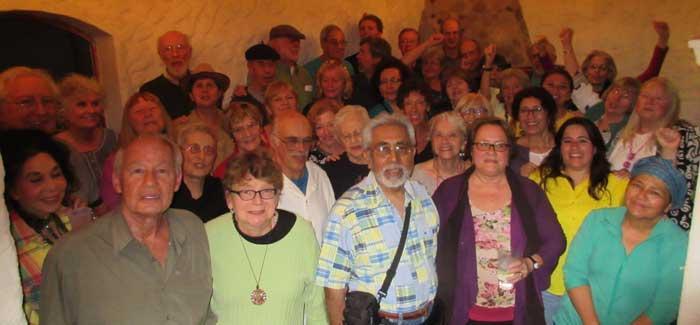
About Us

Vision Statement
We live in a transitional historical moment. An old social order is striving to extend itself in a desperate effort to survive, while around the world, peoples who no longer find such an order humanly viable, yearn for a new world. We are caught between an old dying order and a new one not yet born. On the global as well as the local levels, progressive social movements are struggling for social justice against corporate rule, inequality, sexism, racism, environmental destruction, poverty and war. Mobilizing a rising tide of people of all ages, many nationalities and social identities, classes, faiths, etc. the social movements of our time are raising the consciousness of men and women in both the First and Third Worlds. They are finding that the existing social order neither meets their interests nor is consonant with their image of the kind of society in which they wish to live. Their protest is not only a radical rejection of what exists but also an expression of faith that another world is possible. Such a moment as this cries out for the committed engagement of intellectuals.
What is required is no less than bold, transformative thinking in service to the emancipatory projects of our social movements. What is needed is not ivory tower intellectuals, but thinkers rooted in the concrete struggles around us. We strive for a dialectical unity of theory and practice based on the understanding that theory without practice is empty, while practice without theory is blind. We must understand that social action tests theory while at the same time theory informed by struggle gives direction to our practice. The Research and Learning Center seeks to be a locus of such praxis. We call together activists of all disciplines to form a nurturing community of thinkers in support of progressive social change. Located in San Miguel de Allende, the Center will incorporate resident members, affiliated members located elsewhere, and visiting members. Here in the tranquility of central Mexico we find a refuge for scholars and activists alike to reflect, discuss, write, and learn together in a supportive community.The specific projects undertaken will depend on the interests and talents of the members attracted to this Center and will evolve over time. Persons are drawn to such a center by elective affinity through shared values, visions and missions. The work of the center will be plural and fluid, depending on the interests of those who join together.
Through dialog, consensual groups will emerge that will undertake group projects. While a broadly conceived radicalism will be the initial principle of unity, over time a common mission is likely to evolve, but the center should always remain open to new currents. Since the inaugural event is a Workshop on AlterGlobalizations, the initial work of the Center is likely to be strongly oriented to alternative globalization issues. But the Center remains open to many other projects as well. We are a thinking community, not a social action organization. We will not be participating in Mexican politics. But we will be engaged in transformative thinking. Being located in this part of the Third World so closely tied to the United States gives us a vantage point for understanding North-South relations. Indeed, we hope the Center can become a locus of North-South and South-South dialogue. This project is embedded in a global network. Such a democratic network, a nonhierarchical and noncentered structure of interconnected nodes, has been offered as the organizational model for an alternative globalization. Indeed, this has always been the structural model of social movements. The research and learning center is one such node in a growing social change network. We invite you to join us, remembering that a new world is possible, but it takes our committed effort to make it real.
Our Mission
The Center for Global Justice is a multi-cultural, democratically organized service, learning, and research center. Through our support of the social and solidarity economy, our public education programs, and our research collaborations we seek to empower ordinary people to work to create a more socially and economically just world.
What We Do
The Center engages in local community support and outreach to promote and advance initiatives and movements toward social justice, grassroots empowerment and democracy, and environmental sustainability. It is also devoted to critical analysis of the processes and impacts of globalization, both local and international. The Center works to develop alternative socio-economic systems that conserve and share the world’s cultural, economic, and environmental resources for the benefit of humankind.
As a center for research and learning for a better world, we conduct public education forums, support community led cooperative projects, and organize educational travel. From its inception the Center has been a space for people of all professions, backgrounds and beliefs to come together and work toward making the world a more just and equitable place to live. Please explore our website for detail on our programs.
History
The Center came out of the social movements against neoliberal corporate globalization. Taking the affects of NAFTA on the Mexican economy and society as its central focus, the Center located in Mexico. It was initiated at a 2004 international conference on "Alterglobalizations" by U.S. academics and activists as a project of the Radical Philosophy Association.
Organizers
